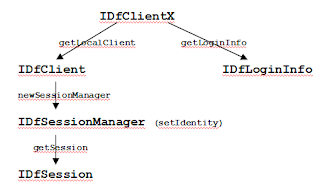Memory Management in Java - Stack and Heap
Memory Management in Java - Stack and Heap
Memory management is a mechanism to allocate memory when new objects are created and free it when no longer needed.
In Java, the memory is divided into 2 segments:
- STACK
- HEAP
STACK
The stack is the place where any local variables and methods
are stored.
The lifetime of variables on the stack is governed by
the scope of the code. The scope is usually defined by an area of code
in curly brackets, such as a method call, or for or while loop. Once the
execution has left that scope, those variables declared in the scope are
removed from the stack.
HEAP
The heap is the place where objects, instance variables and static
variables are stored.
The new keyword allocates memory on the Java heap. The
heap is the main pool of memory, accessible to the whole of the application. If
there is not enough memory available to allocate for that object, the JVM
attempts to reclaim some memory from the heap with a garbage collection. If it
still cannot obtain enough memory, an OutOfMemoryError
is thrown, and the JVM exits
The heap is split into several different
sections, called generations. As objects survive more garbage collections,
they are promoted into different generations. The older generations are not
garbage collected as often. Because these objects have already proven to be
longer lived, they are less likely to be garbage collected.
For Example:
class A {}
public class B {
A
instanceVariable1; //Instance Variable:
instanceVariable1
String
instanceVariable2; //Instance Variable:
instanceVariable2
public static
void main(String[] args) {
B
localVariable; //Local Variable:
localVariable
localVariable = new B();
localVariable.method1(localVariable);
}
public void
method1 (B b) { //Local Variable: b
b.method2("Test");
}
public void
method2 (String s) { //Local Variable: s
instanceVariable2 = s;
}
}
Instance Variables
|
Local Variables
|
Methods
|
Objects
|
instanceVariable1
|
localVariable
|
main
|
new B()
|
instanceVariable2
|
b
|
method1
|
new A()
|
s
|
method2
|
String
|
Pictorial representation of objects, methods and variables




Comments
Post a Comment